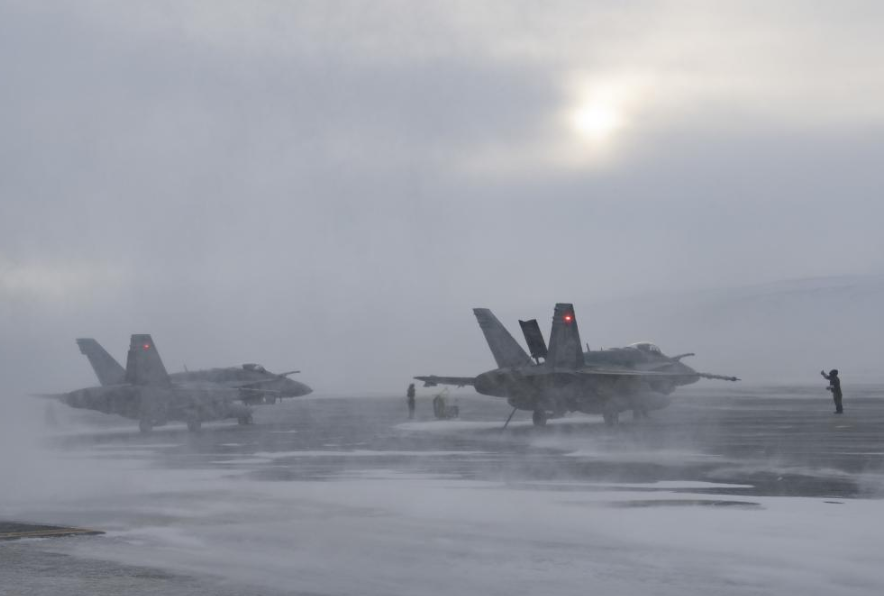Increasing risk of escalation in Arctic says Danish defence intelligence service

Denmark’s Defence Intelligence Service (DEI) painted a stark picture of the country’s evolving security landscape in its annual report on Wednesday, saying changing dynamics in the Arctic and the growing influence of Russia and China are an increasing concern for Denmark and its NATO allies.
According to the intelligence service, the strategic importance of the Arctic has skyrocketed, and this, along with the ongoing conflict with Ukraine, has created a more volatile environment where the potential for military escalation in the Arctic is higher than ever before.
“Russia will demonstrate strength in the region through aggressive and threatening behavior, which will entail a greater risk of escalation than previously seen in the Arctic,” the report said.

The Arctic’s natural resources and critical shipping routes has caused a surge in the strategic importance of the Arctic, something noted in everything from Canada’s Arctic Foreign Policy released this month, to the corridors of Washington, D.C.
Denmark, which is responsible for Greenland’s military defense, plays a critical role in the region’s security, especially given Greenland’s strategic position in the Arctic, its vast energy reserves, proximity to key global trade routes, and the presence of Pituffik Space Base, a crucial asset in U.S. and NATO defense infrastructure.
Threats to NATO from Russia and China’s strategic alliance
The report stressed that Denmark was under no immediate military threat, but that that shifting global power structures will require increased vigilance.
“The military threat from Russia against NATO will increase over the coming years,” the intelligence agency said, noting that as Russia rebuilds its military strength, its willingness to confront NATO countries could grow.
The risk assessment also indicated that the likelihood of Russia adopting a more aggressive stance could rise if Moscow believes NATO is unable to maintain its military superiority or unity.
The intelligence service also flagged the growing ties between Russia and China as another focus of concern.
“China is now by far the largest supplier of raw materials and components for both Russia’s war in Ukraine and Russia’s economy in general,” the report said. “This means that China’s relationship with the West is likely to become increasingly conflict-ridden.”
Comments, tips or story ideas? Contact Eilís at eilis.quinn(at)cbc.ca
Related stories from around the North:
Canada: “Canada is an Arctic country at a pivotal moment,” says Foreign Minister, Eye on the Arctic
Finland: Russian cyber attacks, espionage pose growing threat to Finnish national security, Yle news
Iceland: Iceland authorizes U.S. submarine service visits, Eye on the Arctic
Norway: Russian jamming disrupting GPS signals for Norwegian aviation almost daily, The Independent Barents Observer
Russia:Confrontation is unfolding in the Arctic, says Russian Navy Commander, The Independent Barents Observer
Sweden: Swedes must mentally prepare for war, says military top brass, Radio Sweden
United States: Space takes centre stage in U.S. Department of Defense Arctic strategy, Eye on the Arctic



